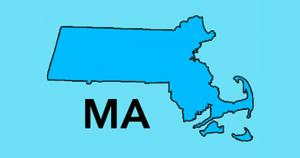Massachusetts expands ConnectorCare program to over 50,000 more people!

OK, after several weeks of this site turning into AnnualRateFilingsDotCom, I'm finally catching up on some other important ACA/healthcare-related developments which are happening.
First on the list is this press release from the Massachusetts Health Connector, which actually came out last week:
Pilot expansion of ConnectorCare reshapes affordability and plan options through the Health Connector
- This historic expansion allows for more access to health insurance plan choices that are both affordable and better suited to meeting an individual’s health needs
BOSTON – Today, the Massachusetts Health Connector Board of Directors approved regulatory changes that will expand access to the Marketplace’s landmark ConnectorCare program through a two-year pilot program, creating the opportunity for tens of thousands of people to access more affordable health care. The ConnectorCare program is currently available for people who make up to 300 percent of the Federal Poverty Level (FPL) and do not have access to health coverage, such as through an employer.
Massachusetts' ConnectorCare program still involves enrollees signing up for private ACA exchange healthcare plans, but provides additional financial assistance (including no deductibles). Also, like the Basic Health Plan (BHP) programs in Minnesota and New York, I believe you can only enroll in a ConnectorCare plan if you're financially eligible to do so.
The regulatory changes were required after Governor Maura Healey signed the Fiscal Year 2024 state budget last week, which included expanding the income limits of ConnectorCare from 300 percent of the Federal Poverty Level to 500 percent and all Marketplace carriers to participate in the program for the first time. Together, the changes mean more residents than ever before will qualify for more help lowering health care costs since the creation of the Health Connector in 2006 and will also have greater access to more plan options.
This is a huge expansion of the program. For comparison, the BHP programs only run through 200% FPL (although New York is looking to expand theirs to 250% FPL and Minnesota hopes to convert theirs into a Public Option open to anyone); California's just-launched CSR enhancement program only runs through 250% FPL; New Mexico's Healthcare Affordability Fund program runs up through 400% FPL; and Colorado's expanded CSR enhancement program runs through 250% FPL.
“Health care affordability is essential for everyone in Massachusetts, but particularly for low- and moderate-income families. Expanding ConnectorCare means delivering real help to tens of thousands of people,” said Governor Maura Healey. “This is an impactful step in addressing affordability and maintaining the highest percentage of health care coverage in the country, and we appreciate our partners in the Legislature for making this effort a priority. We look forward to working with them to further increase access to affordable and quality health care.”
“Every day, too many families in Massachusetts must make tough financial choices that leave out health insurance,” said Lieutenant Governor Kimberley Driscoll. “Thank you to the Legislature for increasing access that will allow even more individuals and families to afford health insurance through this expansion of ConnectorCare,”
“The Health Connector and ConnectorCare program have made affordable health care accessible for hundreds of thousands of people,” said Health and Human Services Secretary Kate Walsh, who is the Chair of the Health Connector Board of Directors. “By expanding ConnectorCare eligibility and making all carriers in the program available to choose from, we can ensure that health care is affordable and equitable to even more people throughout the Commonwealth.”
The ConnectorCare program started in 2014 to deliver Affordable Care Act benefits to Massachusetts residents, replacing the Commonwealth Care program launched with the Health Connector’s creation in 2006. Using federal Advance Premium Tax Credits and additional state funding, ConnectorCare provides help paying for premiums and co-pays on a scale based by income. It also includes no deductible payments for members.
“Raising the income limit for ConnectorCare creates the largest expansion in health care affordability since the Health Connector was created in 2006,” said Executive Director of the Massachusetts Health Connector Audrey Morse Gasteier. “This extension of ConnectorCare means people can access plans that deliver important benefits, while saving thousands of dollars a year on the cost of health care.”
The new expansion to 500 percent of the FPL increases limits to $72,900 for an individual and $150,000 for a family of four.
The changes will provide cost savings to more than 50,000 people. This includes current Health Connector members who earn between 300 and 500 percent of the Federal Poverty Level, as well as people who are transitioning from MassHealth, have applied for Health Connector plans in the past and did not qualify for subsidy, or are new applicants.
At first I was surprised that the number of additional Bay Staters expected to be impacted by this expansion wasn't higher, but then I realized that over half of those enrolled in the MA ACA exchange are already enrolled in ConnectorCare plans today; only around 40,000 (17%) earn 300 - 500% FPL, so the 50K figure makes more sense with that context. It's still a big deal for them, however.
Along with extending income eligibility, all carriers who participate in the Marketplace will offer plans in ConnectorCare. Blue Cross Blue Shield of Massachusetts, Harvard Pilgrim Health Care and UnitedHealthcare join current participating carriers Fallon Health, Health New England, Mass General Brigham Health Plan, Tufts Health Plan, and WellSense Health Plan.
Newly qualified and current Health Connector members will be automatically enrolled in ConnectorCare and retain their current carrier. Changes go into effect for 2024 plans, and Open Enrollment for next year starts on Nov. 1.
The two-year limit on the timing of the program is clearly tied to the currently-scheduled sunsetting of the enhanced federal subsidies provided by the American Rescue Plan and extended until the end of 2025 by the Inflation Reduction Act. If the ARP/IRA subsidy expansion is extended or (hopefully) locked in permanently, I presume the ConnectorCare expansion will be as well.



